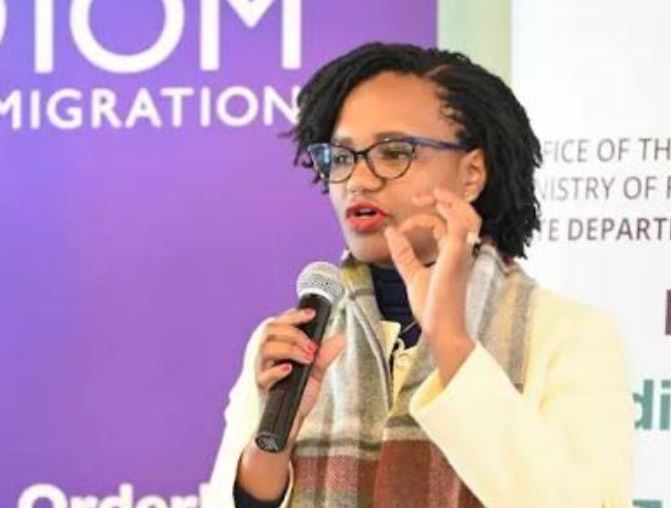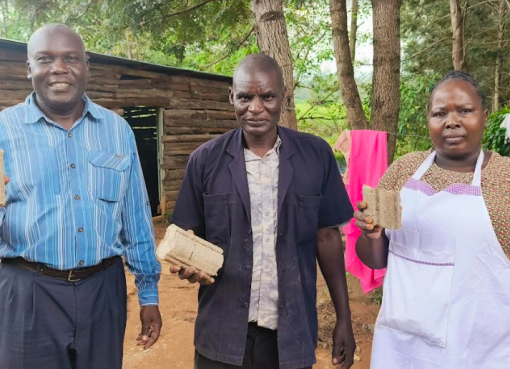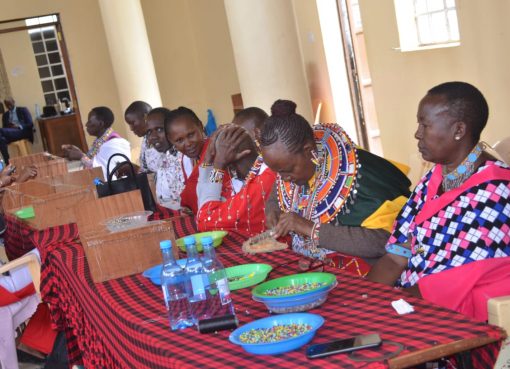The Principal Secretary (PS) in the State Department for Diaspora Affairs, Ms. Roseline Kathure Njogu, has underscored the importance of the diaspora community to the country’s economic growth.
The PS said the Kenya Vision 2030 recognises Diaspora contribution as a critical component to the growth of our economy and in the achievement of our overarching vision of a globally competitive and prosperous Kenya by the year 2030.
Speaking during the validation of the Kenya Diaspora Policy 2024 in Naivasha on Friday, Ms. Njogu noted that the reviewed policy would be an avenue for Kenya to anchor her intentions and ambitions to protect, engage, empower, and prosper the Kenyan diaspora.
“This validation is a culmination of efforts from numerous stakeholders in coming up with the Draft Policy. The validation provided an opportunity for the diaspora community to provide feedback and input on the draft policy, ensuring that it reflects their needs and aspirations,” the PS noted.
The comprehensive policy outlines several key objectives, including facilitating diaspora savings, investments, remittances, and technology transfer; strengthening partnerships and collaboration with the Kenyan diaspora; and enabling the placement of Kenyans in the international job market.
Njogu said the Draft Diaspora Policy 2024 was a significant step forward in recognising the vital role played by the Kenyan diaspora in the country’s economic and social development.
By providing a framework for engagement, the policy aims to foster a mutually beneficial relationship between the government and Kenyans living abroad.
She emphasised that the policy aligns with the State Department’s mandate to safeguard the rights, promote welfare, and advance the interests of the Kenyan diaspora.
“This is in line with the State Department for Diaspora Affairs’ mandate to protect the rights and promote the welfare and interest of the Kenyan diaspora; facilitate Diaspora savings, investments, remittances, and technology transfer; strengthen partnership and collaboration with the Kenyan diaspora; and facilitate placement of Kenyans in the international jobs market,” Njogu stated.
She reiterated the government’s commitment to continued incorporation of the diaspora in public participation and further enact policies and regulations that mainstreamed them into national development and revealed that the government, through other agencies, was in the process of enacting and operationalising other supportive instruments in place, including the Global Labour Migration Strategy and the Labour Migration Bill/Policy, among others.
The PS further revealed that the Bottom-Up Economic Transformation Agenda (BETA) of the current government has realised tremendous progress in crucial areas such as the promotion of continuous dialogue with Kenyans abroad, enhanced capacity in offering consular services to Kenyans abroad, and enhanced protection of Kenyans abroad through Bilateral Agreements(BLAs)and Memoranda of Understanding (MoUs).
She noted that the government has also evacuated distressed Kenyans from regions with political crises, victims of human trafficking, and other Kenyans on medical grounds.
Over the years, Kenya has had the Diaspora Policy 2014, which was a response to the urgent need for mainstreaming the Kenyan Diaspora into the national development process in line with the aspirations and goals of the Kenya Vision 2030 development blueprint, but the policy needed to be reviewed to align it to the changing needs in the diaspora sector.
Head of Mission, International Organisation for Immigration (IOM), Ms. Victoria Kajja, also underscored the importance of updating the Kenya Diaspora Policy in light of evolving migration dynamics.
“With over four million Kenyans living abroad, it is imperative that our policy reflects and strives to meet the diverse needs of Kenya’s diaspora, but also appreciates the contributions of Kenyans in diaspora to our economy,” she said.
To this end, Ms. Kajja said IOM has been actively responding to some of these or existing gaps and supporting the Government of Kenya (GoK) through various initiatives such as building the capacity of the State Diaspora Department through mapping to better come up with the most effective approach of understanding the composition of the Kenya Diaspora and in enhancing diaspora investment back home by formulating the “Send Money and Invest in Kenya: A Guide for Diaspora Remittances and Investment” document among support.
The event was attended by key stakeholders including the State Department for Social Protection, State Department for Labour and Skills Development, State Department for Diaspora Affairs, State Department for Gender, Ministry of Information, Communication, and the Digital Economy, The Central Bank of Kenya, Directorate of Immigration Services, and Kenya Institute of Migration Studies, among others.
By Mabel Keya- Shikuku





